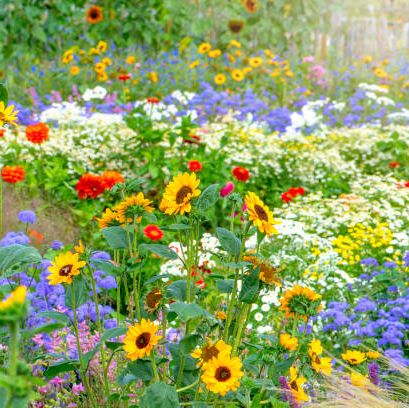A Garden is a plot of ground, usually near a home, where you can plant flowers, shrubs, vegetables and fruits. A garden also serves as a place to relax and unwind. Often, the garden is used by the community for recreation and socializing. Here are some tips to start a Garden. Keeping it well-tended is an important part of gardening success. Here are some tips to get started: a small garden is easier to tend.
Native plants are those that have grown naturally over hundreds of years in a particular area. They are adapted to the growing conditions of the area, which is beneficial for local wildlife and pollinators. Non-native plants are not native to the area and can quickly take over the ecosystem. If you want to avoid problems with invasive plants, consider planting only native plants. You can easily find them on the Internet or at the local nursery. If you want to get the most bang for your buck, plant only native plants.
Native plants are plants that have grown in an area naturally. They have adapted to the growing conditions and are beneficial to local wildlife and pollinators. They will not spread as quickly as non-native plants. Invasive plants are those that have no place in a specific area and are threatening the native ecosystem. Hence, it’s important to use native plants in your Garden. It is also important to remember to plant only native plants.
In general, a garden is a space where plants can thrive. A native garden will be surrounded by plants that have been grown naturally for hundreds of years in a specific region. Choosing plants that are native to an area will help conserve the environment and help local wildlife. A native garden will also be more appealing and will not have pest problems. It is also important to keep in mind that native plants are more likely to attract pollinators and other wildlife than non-native plants.
Another way to attract snails and slugs to your garden is to set up a beer garden. The beer will attract these animals and they will drown. However, this solution may not work for your entire problem. You can experiment with various types of plants to find the right one for your needs. And if you’re planning to use the garden for deception, remember to keep your surroundings clean and free of pests. This will help you to avoid wasting time and resources.
When selecting plants for your Garden, it is essential to choose ones that require minimal care. Low maintenance plants, such as roses, can be more attractive to visitors. In addition, these plants will need less water than higher-maintenance plants. Using weeds as groundcover, herbs and flowers, can be beneficial. If you’re a beginner, consider planting herbs and perennials, but keep in mind the climate conditions of your area to ensure your garden remains healthy and flourishing.
While most people love plants with bright colors, you should also consider your own climate and the weather conditions of your location before you decide what plants to grow in your garden. Whether you live in a hot or cold climate, you’ll want to pick the best plants for your region. The climate of your area will determine what kind of plants are suitable for your area. In general, plants need about an inch of water each week. If you live in a dry or tropical environment, you’ll need to water your garden more frequently.
In addition to proper care, you should also keep track of your plants. While you’re aiming to grow vegetables and flowers, keep track of their names and types. Depending on your growing season, different plants will need different kinds of care. Listed below are some tips to help you with garden maintenance. A well-maintained garden will produce healthy and beautiful crops. If you’re not sure about your gardening abilities, consider consulting a gardening professional.
Plants that grow in cold climates will need special care. They need to be watered often. The plants will need extra care and regular maintenance. Thankfully, there are many tips that can help you make your garden pest-free. Once you’re confident with your knowledge of the climate in your area, you can start planning your garden. In no time, you’ll be enjoying the beautiful flowers and vegetables in no time. There are many ways to enjoy your garden.

